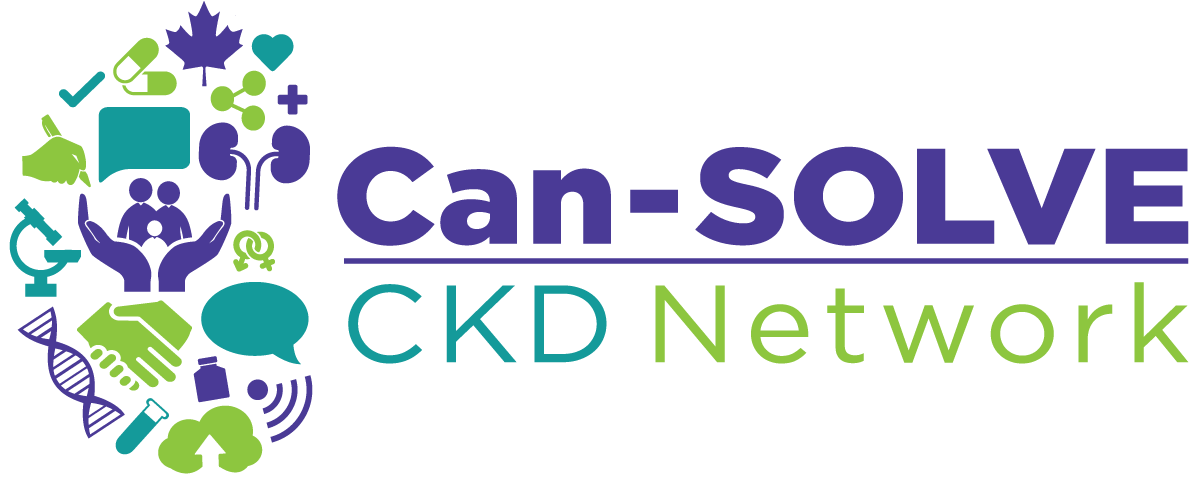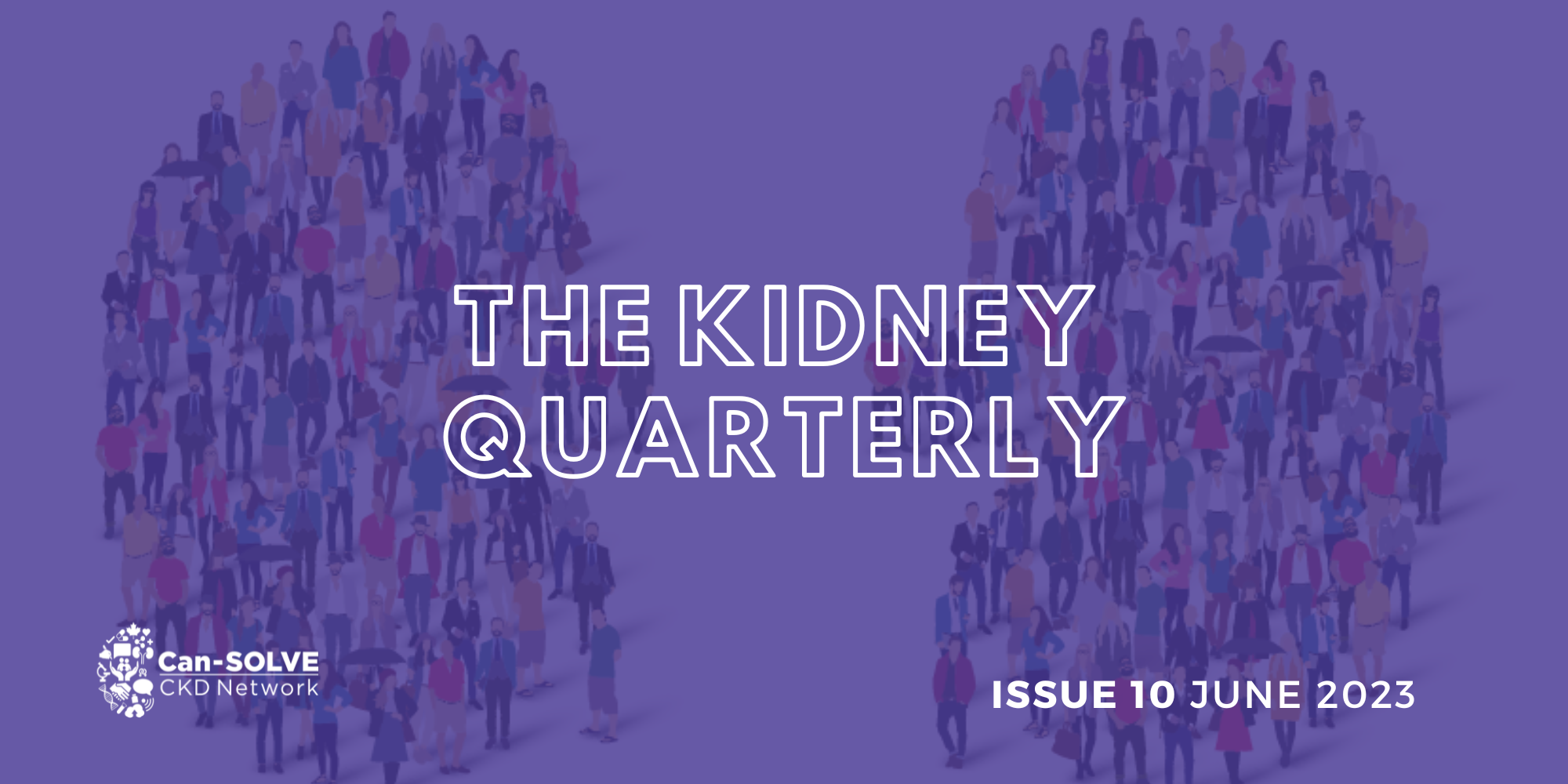
June is National Indigenous History Month, a time to honour the history, culture, and diversity of Indigenous peoples.
In this issue of The Kidney Quarterly, we explore some of the ways Can-SOLVE CKD and our partners are working to improve the kidney health of Indigenous peoples.
- We are excited to introduce a brand new video series focused on applying the teachings of Indigenous Knowledge Keepers in a health research setting.
- We also share an update on the iCARE project, an initiative to improve kidney disease prevention and treatment strategies for youth living with type 2 diabetes.
- Finally, we meet Jocelyn Jones, coordinator of the Indigenous Peoples’ Engagement and Research Council (IPERC).
Can-SOLVE CKD is committed to working with Indigenous patient partners, Knowledge Keepers, community leaders, academics, and health care providers to ensure the best kidney health outcomes, while ensuring Indigenous knowledge and perspectives are reflected across our research projects and governance.
Feature story
New video series brings traditional Indigenous knowledge into health research
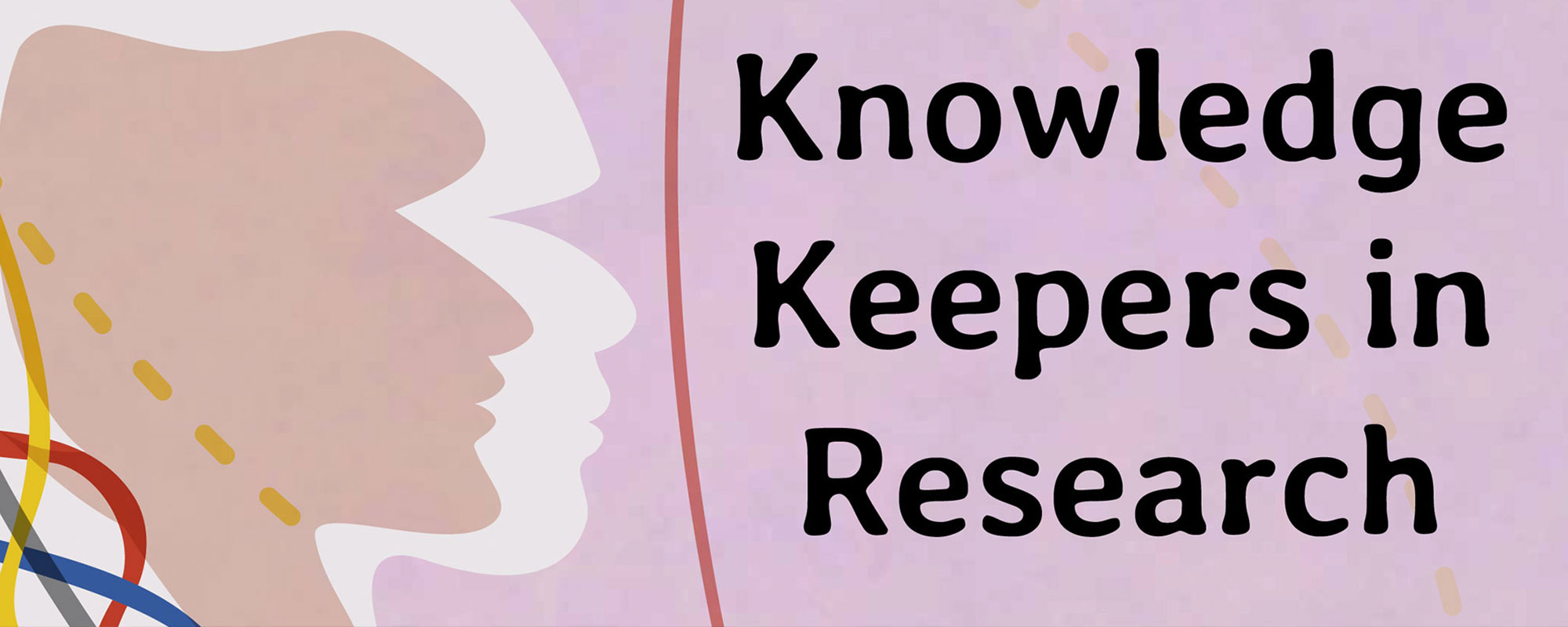
The Can-SOLVE CKD Network is proud to introduce the Knowledge Keepers in Research Video Series, a new resource to support meaningful and reciprocal relationships between researchers and Indigenous communities.
This eight-part video series encourages health researchers to honour Indigenous ways of knowing and incorporate them into practice. The videos are complementary to the Knowledge Keepers in Research virtual guidebook with the goal of supporting researchers and their teams to incorporate traditional knowledge in research projects through respectful engagement of Knowledge Keepers and Indigenous patient partners.
“The Knowledge Keepers are an important part of the Can-SOLVE CKD Network,” says Dr. Malcolm King, Can-SOLVE CKD Indigenous Health Research Advisor and one of Canada’s foremost Indigenous health scholars. “They reflect the important knowledge in many different ways: Traditional knowledge, ceremonial knowledge, historical knowledge of our communities and how this affects people’s health and well, and, in particular, kidney wellness.”
Seven distinct strands are explored in the videos, reflecting teachings from Indigenous Knowledge Keepers on how to foster culturally safe partnerships in health research.
- Essential/foundational teachings: Helping researchers acknowledge history and demonstrate openness to another way of being.
- Preparation for meeting with a Knowledge Keeper: Incorporating ceremony to create openness; understanding key terms (e.g., white privilege, colonialism, settler, ally).
- The ask: How to make one’s intentions clear; importance of offering tobacco or another gift.
- Acknowledgment and protocol: How Knowledge Keepers’ work can be compensated; communicating beyond the currency of knowledge.
- Knowledge: Commitment to pass on knowledge; intellectual property rights; honouring where teachings/knowledge comes from.
- Who is a Knowledge Keeper?: Understanding Knowledge Keepers’ different specialties and roles as a conduit of spiritual energies and messages.
- Relationships/Kinship: Building trust and strengthening personal ties to fulfill commitments.
“This book and video series with the Knowledge Keepers has been a long time coming,” says Helen Robinson-Settee, a patient partner and co-chair of the working group that developed the Wabishki Bizhiko Skaanj Learning Pathway. “It is so important to be present and patient when working with Indigenous Knowledge Keepers because they will not be here forever and our time with them is precious. They are our links to the past, so when they share knowledge with us, it is our responsibility to pay attention and help connect that knowledge of Indigenous research, education, culture, science with the generations to come.”
Between 2017 and 2023, Knowledge Keepers were identified and asked to participate in the project with a Nation-appropriate tobacco offering or gift. Individual interviews, two in-person gatherings, and virtual meetings were conducted with Knowledge Keepers from several First Nations and Métis communities.
Knowledge Keepers in Research is a learning marker on the Wabishki Bizhiko Skaanj Learning Pathway, a tool for helping non-Indigenous people learn about cultural competency within the Can-SOLVE CKD Network and beyond. Wabishki Bizhiko Skaanj is a training platform that aims to enhance users’ knowledge and awareness of racial biases, Indigenous voices and stories, the impact of colonization on Indigenous health, and culturally safe health research practices.
Training markers within the pathway provide learners with a general overview of the rich histories, cultures and ways of knowing, being, and doing of First Nations, Inuit, and Métis. The markers also provide learners with important guidance on how to engage respectfully and equitably with Indigenous communities.
The new video series debuted at the 2023 Can-SOLVE CKD Network Annual Meeting in May. The session was introduced by Robinson-Settee followed by a personal introduction from each Knowledge Keeper. A fireside chat panel moderated by Robinson-Settee discussed the many ways researchers can engage with Knowledge Keepers in their work.
The fireside chat included an offering of tobacco or a gift to each of the Knowledge Keepers to ask for the sharing of their wisdom during the panel session. By teaching this protocol of offering tobacco or a gift, Robinson-Settee demonstrated one of the strands highlighted in the guidebook and videos regarding Acknowledgment and Protocol.
The Can-SOLVE CKD Network would like to acknowledge and thank the Knowledge Keepers who contributed their wisdom to this project: Evelyn Voyageur, Maurice Latash Nahanee, Lillian Favel-Daniels, Violet March, George Laliberte, Mary Wilson, Myra Laramee, Dot Beaucage-Kennedy, Malcolm King, Dan Thomas, and Amelia McGregor.
We also recognize and thank the Wabishki Bizhiko Skaanj Learning Pathway working group that led the development of this work: Catherine Turner, Mary Beaucage, Helen Robinson-Settee, Joanne Kappel, Lorraine McLeod, Arlene Desjarlais, Malcolm King and Craig Settee.
Development of the Knowledge Keepers in Research module was funded and facilitated by the Can-SOLVE CKD Network with important contributions from the Canadian Institutes of Health Research, Diabetes Action Canada, and Amgen Canada.
“The Knowledge Keepers are an important part of the Can-SOLVE CKD Network. They reflect the important knowledge in many different ways: Traditional knowledge, ceremonial knowledge, historical knowledge of our communities and how this affects people’s health and well, and, in particular, kidney wellness.”
Dr. Malcolm King
Indigenous Health Scholar
Research Update
New program helps manage mental health and kidney health of youth with type 2 diabetes
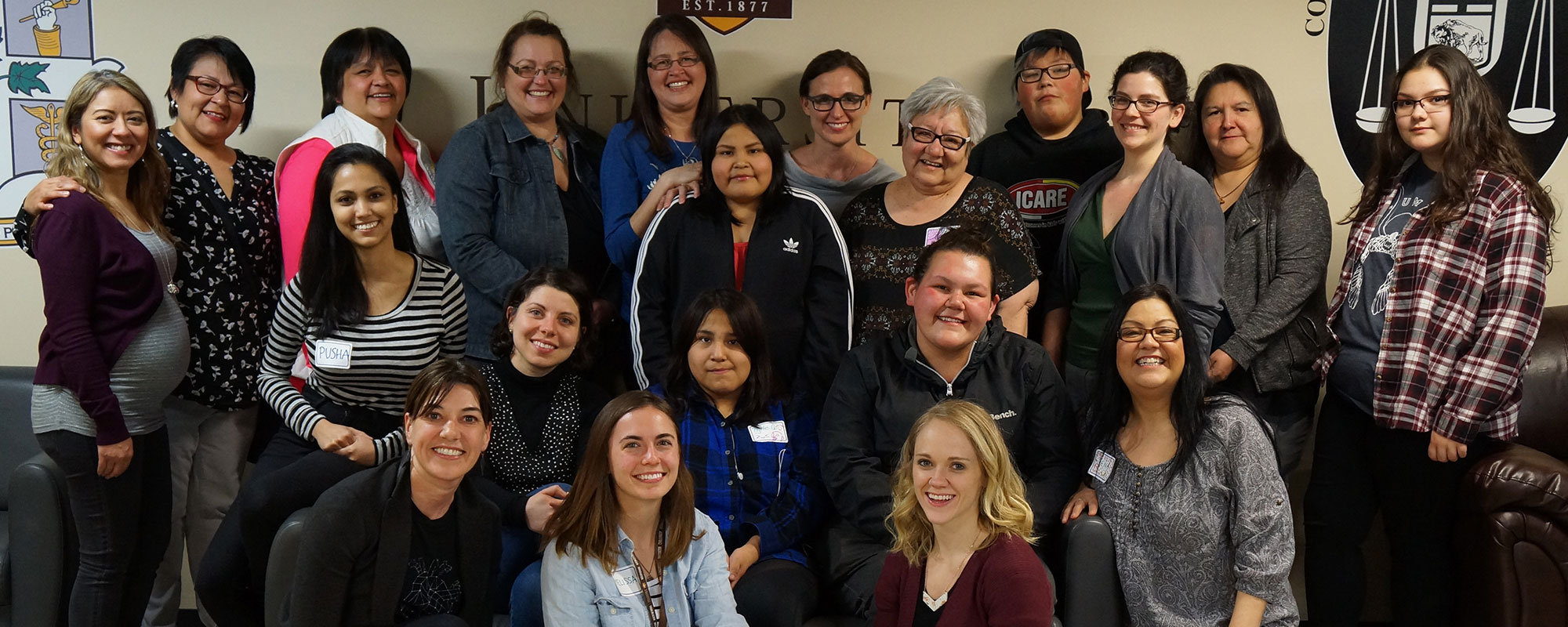
Type 2 diabetes affects an increasing number of children around the world, particularly Indigenous children in Canada. Many youth with type 2 diabetes are at risk of developing kidney disease, with the potential of experiencing kidney failure later in life.
The iCARE research team has been studying which risk factors contribute to early onset kidney disease in youth with type 2 diabetes across Canada. With early identification and treatment, it is possible to slow the progression of kidney disease and preserve kidney health for longer.
As with all Can-SOLVE CKD projects, patient partners have been instrumental in shaping the research questions. It became clear, as the iCARE team engaged with patient partners, that mental health is a high priority.
“Over time [this research project] has come to include some of the mental health concerns that the youth have brought forward to us in terms of living well with diabetes, and the barriers in terms of access [to care], food security and a lot of the other environmental, structural and contextual factors which impact their life,” explains iCARE co-lead Dr. Brandy Wicklow, a pediatric endocrinologist at the Children’s Hospital Research Institute of Manitoba. “These factors impact their ability to manage diabetes and therefore affect their long-term risk of kidney disease.”
Socioeconomic factors and governmental structures are also serious underlying issues related to diabetes and kidney disease. Importantly, many youth and families participating in iCARE are Indigenous and based in remote communites. More than 80 percent of the youth with diabetes that Wicklow and Dart see in their Winnipeg clinic are Indigenous and facing socioeconomic and mental health challenges because of colonialism.
“So our project has since morphed into also looking at an intervention called Dialectical Behavioual Therapy to support mental health and support strategies to live well with diabetes,” says Wicklow. “This involves building up positive, strengths-based skills to help them do that.”
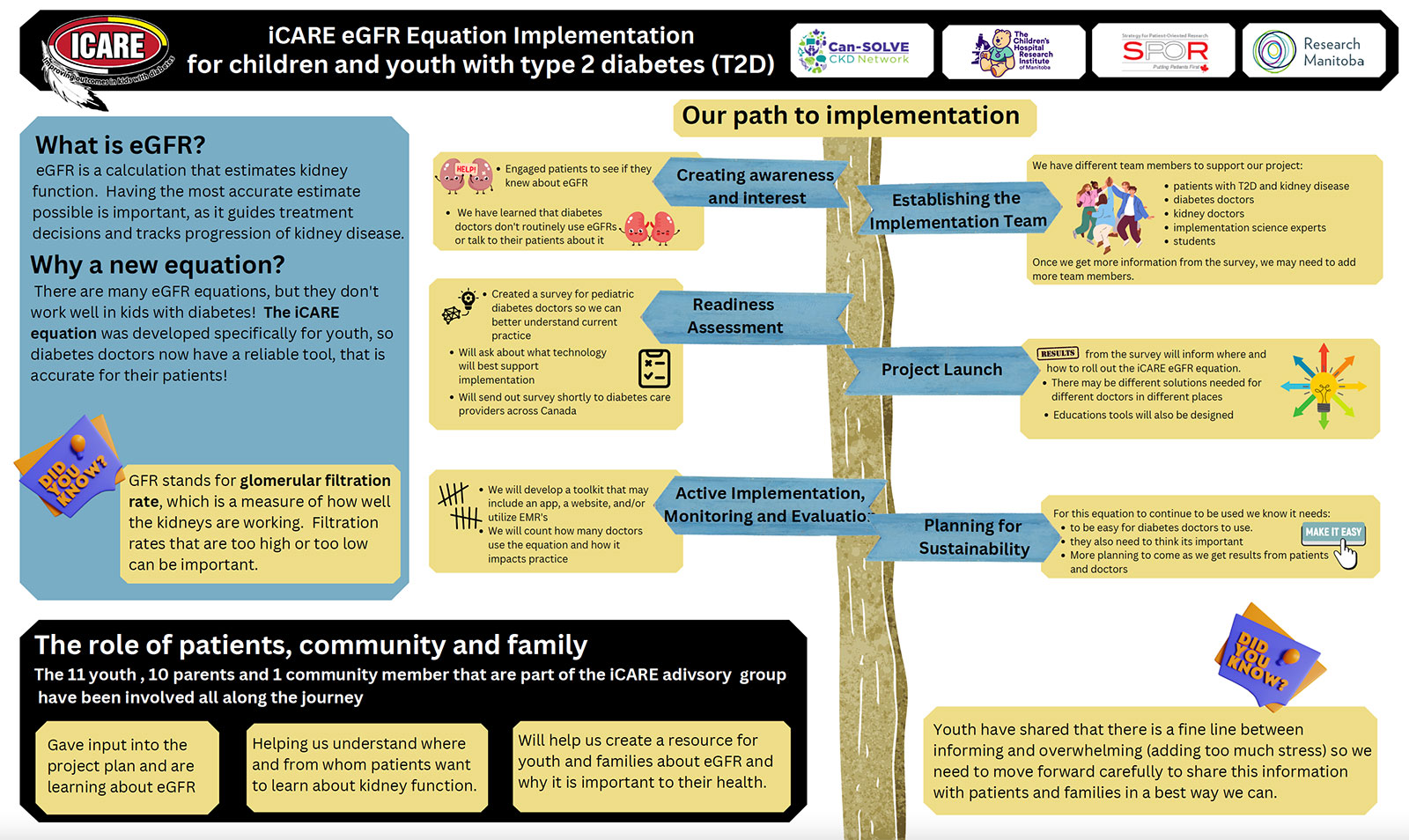
iCARE Phase 2 project poster
Wicklow notes that the Indigenous Peoples’ Engagement and Research Council (IPERC) was instrumental in providing guidance to the iCARE team. This support has helped to ensure data collection aligns with OCAP principles, that the project is focused on Indigenous priorities, and that the team is engaging with Indigenous communities meaningfully and respectfully. The iCARE team has also established its own group of Indigenous advisors to provide guidance and support.
To know which patients need to be prioritized, and if interventions are working, a reliable measure of kidney function is essential. In the clinic, kidney function is estimated by the rate at which the kidneys filter blood, called estimated glomerular function rate (eGFR). Low eGFR is associated with lower kidney function. But in teens with diabetes, eGFR may be normal or high, which can be deceiving.
“What we’re learning is that having a higher GFR is actually pathologic and can contribute to kidney injury over time,” explains Dr. Allison Dart, a pediatric nephrologist at Health Sciences Centre Winnipeg, who co-leads the iCARE study. “We also need to know a patient’s baseline function, in order to know when things are getting worse.”
Using this knowledge, the iCARE team created a special equation to predict kidney disease progression in youth with type 2 diabetes, called the iCARE eGFR. Now, the team is working to implement the tool into clinical practice, especially among diabetes specialists who may be less familiar with eGFR.
“We want to make sure people are aware of this [tool], talking to their patients about it and acting on it , and that will hopefully lead to better outcomes for youth with diabetes,” says Dart.
The next priority for the team is implementing the iCARE eGFR tool in pediatric diabetes clinics across Canada. The team also wants to ensure that community members understand the benefits of this research and the efforts to improve care. “We’ve spent a lot of time this past year developing those relationships in a meaningful way,” says Dart. “Now we want to make sure community members are benefiting from this research.”
We want to make sure people are aware of this [tool], talking to their patients about it and acting on it , and that will hopefully lead to better outcomes for youth with diabetes.
Dr. Allison Dart
Pediatric Nephrologist
Profile
Meet Jocelyn Jones, IPERC Coordinator
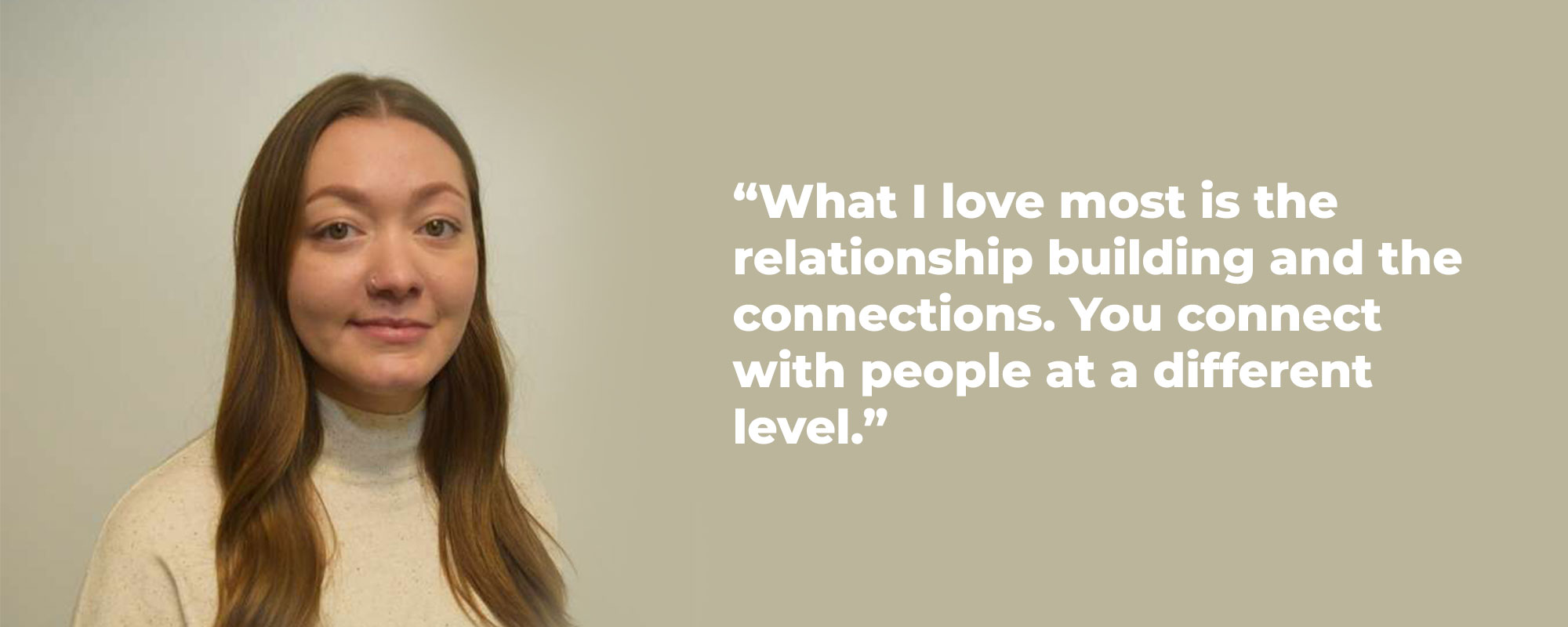
The Indigenous Peoples Engagement and Research Council (IPERC) is at the heart of Can-SOLVE CKD, providing guidance on Indigenous research projects and initiatives within the network. Near the end of 2022, a new IPERC Coordinator joined the team: Jocelyn Jones.
Jones is a member of Shoal Lake 40 First Nation, which is located in the Kenora District of Ontario on Treaty 3 territory. Her interest in working with Indigenous communities sparked when she was completing her criminal social justice diploma at Okanagan College.
“I started to see how Indigenous people were over-represented not only in the criminal justice system, but the social and health system as well,” explains Jones. “And then not knowing a lot about my cultural background and not really knowing what my grandmother experienced in residential school, it really created a drive to want to get my Indigenous studies degree, and to learn more about Indigenous culture and ways of knowing.”
After getting her Bachelor’s degree in Indigenous Studies, Jones joined WorkBC, where she helped organize an Indigenous work-readiness plan. But Jones wanted to go further and work with an organization with a strong Indigenous focus.
When she came across the job posting for IPERC Coordinator, it seemed like the perfect fit, she says. Along with her interest in working with Indigenous peoples, she had her own personal experience as a caregiver for her grandfather, who lived with diabetes and kidney failure.
Six months into the job, Jones notes a lot of positive aspects about her role. “What I love most is the relationship building and the connections. You connect with people at a different level. It doesn’t feel like a job – most of the time,” she adds with a laugh.
Jones says she is looking forward to finalizing IPERC’s strategic plan for Can-SOLVE CKD Phase 2. Four priority areas have been identified, including relationship building and connections; governance and administration; building capacity and advocacy; and research and engagement.
Along with helping to organize and facilitate IPERC meetings, Jones is part of the Can-SOLVE CKD Indigenous Initiatives team and contributes to the Kidney Check research project, which aims to improve kidney screening in rural and remote Indigenous communities.
“I am grateful to be able to work with such intelligent and creative individuals,” says Jones. “The council is amazing, as they not only volunteer their time but ensure Indigenous communities and individuals are heard, especially when discussing chronic kidney disease.”
I am grateful to be able to work with such intelligent and creative individuals. The council is amazing, as they not only volunteer their time but ensure Indigenous communities and individuals are heard, especially when discussing chronic kidney disease.
Jocelyn Jones
Coordinator, Indigenous Peoples' Engagement and Research Council
Connect with us!
Subscribe to learn more about what we do, why it matters, and how you can get involved!
